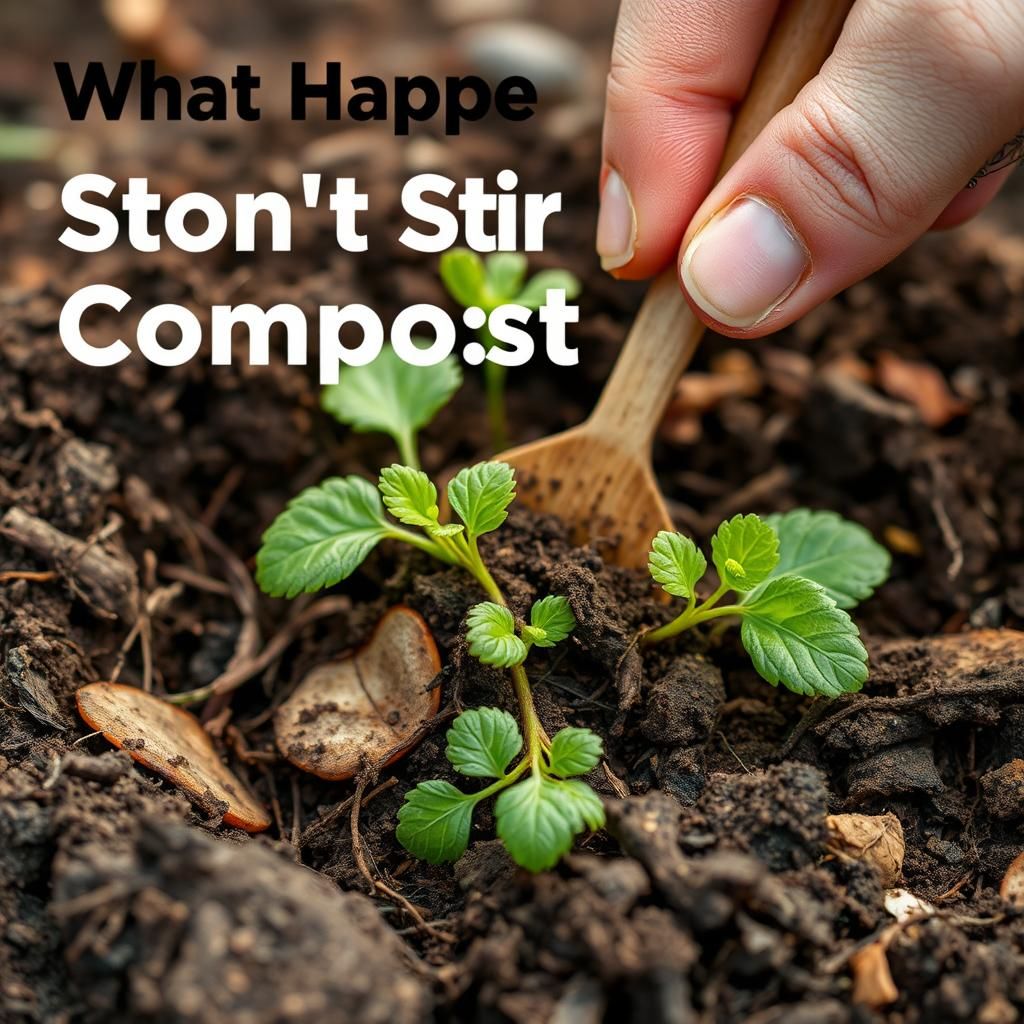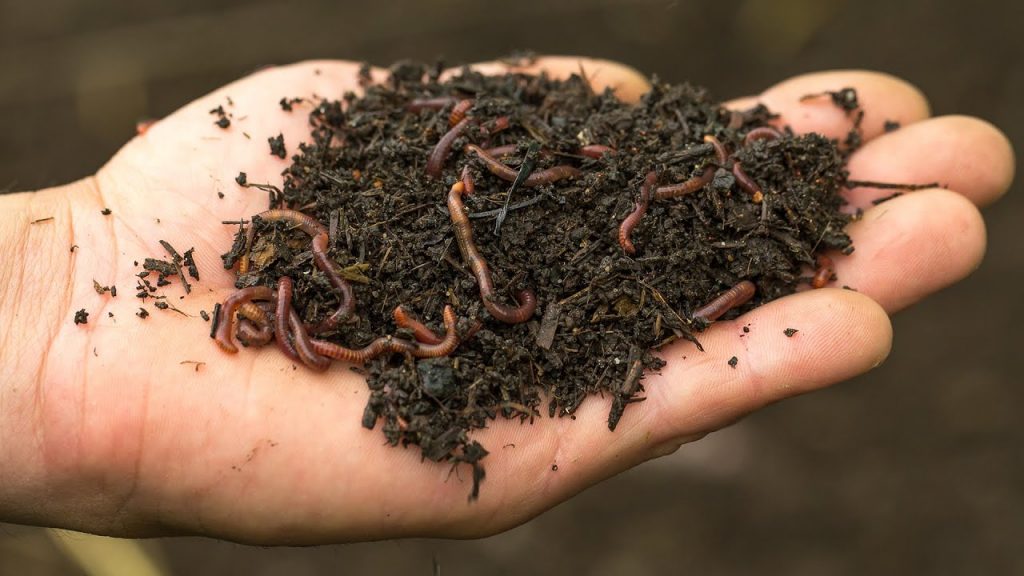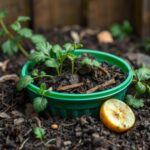What Happens if I Don't Stir My Compost? Understanding the Consequences for Your Composting Process

Composting is a natural process that transforms organic waste into nutrient-rich soil amendment, but its effectiveness greatly depends on proper management. One crucial aspect often overlooked by novice composters is the importance of stirring or turning the compost pile. Failing to do so can lead to a range of consequences, affecting both the speed of decomposition and the quality of the finished compost. This article explores what happens when you neglect to stir your compost, highlighting potential issues such as odor problems, pest attraction, and uneven decomposition. Understanding these consequences will help you achieve a thriving composting process.
What Happens if I Don't Stir My Compost?
If you neglect to stir your compost, it can lead to several issues that inhibit the decomposition process. Without stirring, the materials in the compost pile may become compacted and lack proper airflow, resulting in anaerobic conditions. This can cause unpleasant odors and promote the growth of unwanted bacteria instead of the beneficial microorganisms essential for effective composting. Additionally, the decomposition may slow down, leading to a longer time for the materials to break down completely. Proper turning of the compost also helps to ensure that all organic materials are evenly mixed, promoting a more uniform nutrient distribution and enhancing the heating process that is crucial for killing pathogenic organisms and weed seeds.
Reduced Aeration
Failing to stir your compost can result in reduced aeration, which is vital for the aerobic bacteria that break down organic matter. Without sufficient air, the compost pile can become densely packed, leading to an oxygen-deprived environment. Consequently, this anaerobic condition can foster the growth of odorous bacteria, creating foul smells and a less effective composting process. A well-aerated pile is crucial for maintaining a temperature conducive to decomposition and preventing pathogens from thriving.
Unpleasant Odors
When compost is not mixed regularly, it can develop unpleasant odors due to the buildup of anaerobic bacteria. These bacteria thrive in low-oxygen environments, producing substances like hydrogen sulfide, which contributes to foul smells. Regular stirring introduces oxygen into the pile, promoting the growth of beneficial aerobic bacteria that help to break down materials more efficiently while minimizing odors. If left unturned, the compost can become not only smelly but also unmanageable, deterring effective composting.
Inconsistent Decomposition
Inconsistent decomposition occurs when compost materials are not stirred, disrupting the uniform mixing of organic matter. This can lead to certain sections breaking down at different rates, resulting in a varied compost output. Some materials may take longer to decompose, leading to a mix of partially decomposed and entirely undecomposed particles. Regular stirring ensures that all materials reach the necessary temperature and conditions needed for effective breakdown, yielding a more uniform and nutrient-rich compost.
Increased Pests and Disease
A stagnant compost pile can become a breeding ground for pests and diseases. Without proper turning, the moisture and heat generated during decomposition can attract unwanted insects, rodents, and even larger animals looking for a food source. Moreover, the lack of aeration and proper temperature management can allow harmful microorganisms and pathogens to thrive, posing a risk to garden plants if they are introduced into the soil. Stirring the compost not only eliminates these threats by promoting a healthier environment but also deters pests from taking up residence in the pile.
Longer Composting Time
Not stirring your compost will likely result in a longer overall composting time. The lack of mixing reduces the efficiency of the decomposition process, as even distribution of heat and microbes is critical for rapid breakdown. A well-tended compost pile, with regular stirring, can decompose organic materials in weeks instead of months. As a result, bypassing this important step can slow your composting efforts significantly, impacting garden performance and nutrient availability for plants.
| Issue | Effect |
|---|---|
| Reduced Aeration | Anaerobic conditions, unpleasant odors |
| Unpleasant Odors | Foul smells, deter effective composting |
| Inconsistent Decomposition | Varied breakdown rates, uneven compost quality |
| Increased Pests and Disease | Attracts pests, promotes harmful microorganisms |
| Longer Composting Time | Extended waiting period for usable compost |
What happens if you don't stir your compost?

If you don't stir your compost, a variety of issues can arise that impact the effectiveness of the composting process. Stirring, or turning, compost ensures that the materials decompose evenly, maintain aerobic conditions, and are adequately mixed to enhance microbial activity. Failing to do so can lead to several negative outcomes.
Decreased Aeration
When compost is not stirred, the lack of aeration can cause anaerobic conditions to develop. This means that oxygen cannot adequately penetrate the organic materials, leading to a slower decomposition rate. The following effects may occur:
- Accumulation of harmful gases like methane and carbon dioxide.
- Production of unpleasant odors due to the breakdown of materials without sufficient oxygen.
- The growth of unwanted bacteria and pathogens that thrive in anaerobic environments.
Pest and Odor Problems
Stagnant compost with insufficient airflow can become a breeding ground for pests and undesirable microorganisms. These issues are often compounded by odor, making the compost pile less pleasant to maintain. Consider the following:
- Increased attraction of flies and other insects.
- Strong, foul odors that can deter you and your neighbors from good composting practices.
- Possible infestation by rodents seeking the decaying organic matter.
Unbalanced Temperature
Proper temperature regulation is crucial for efficient composting. If compost is left undisturbed, heat generated by microbial activity can become concentrated in certain areas, leading to:
- Hot spots in the compost that can kill beneficial organisms.
- Cold spots that slow down decomposition dramatically.
- Inconsistent compost quality when it's finally ready to use.
Slower Decomposition
Without mixing, the decomposition process can slow significantly, prolonging the time it takes for the compost to mature. The consequences include:
- Increased waiting time before the compost is usable in your garden.
- Potential for a nutrient imbalance due to unequal breakdown of materials.
- Frustration for gardeners looking for a quick source of organic matter.
Less Nutrient Diversity
When compost is not stirred, the breakdown of materials can become uneven, leading to a lack of nutrient diversity in the final product. This situation can result in:
See also:
- Uneven nutrient distribution, which can affect plant health.
- The potential for some materials to remain undecomposed, affecting overall quality.
- A less effective soil amendment that doesn't provide the benefits intended.
What happens if you don't mix your compost?

If you don't mix your compost, several issues can arise that may hinder the composting process and affect the quality of the final product. Composting relies on the aerobic decomposition of organic materials, which is facilitated by the introduction of oxygen through mixing. Here’s what you can expect if you neglect this important step:
Reduced Aeration
Without regular mixing, your compost pile can become compacted. This compaction limits the amount of oxygen that reaches the materials within the pile, leading to anaerobic conditions. Anaerobic decomposition produces gases like methane, which is not only less efficient but can also be harmful to the environment.
- A lack of airflow can inhibit the growth of beneficial microorganisms.
- It can result in a slower decomposition rate.
- Reduced oxygen can cause foul odors due to the production of bacterial byproducts.
Imbalance of Ingredients
When compost is not mixed, the ingredients can settle into layers. This layer formation can lead to nutrient imbalance as certain materials may decompose more quickly than others, leading to unevenly composted material.
- Top layers may dry out while lower layers remain too wet.
- Some materials may become over-carbonized, inhibiting the overall process.
- This can result in nutrient-rich areas beside nutrient-poor areas in the final compost.
Pest Attraction
A stagnant compost pile can attract pests such as rodents and insects. These pests may be drawn to the moist, undisturbed layers of compost that can become breeding grounds for unwanted organisms.
- Stagnation can lead to the presence of fruit flies and other insects.
- Rodents may find a suitable nesting environment among the compacted materials.
- Unpleasant odors can also draw unwanted wildlife.
Slower Decomposition Process
The decomposition process relies heavily on maintaining optimal conditions for microorganisms. Without mixing, the rate of decomposition can slow considerably because the necessary conditions for a healthy compost ecosystem aren’t met.
- Lower temperatures can result from reduced microbial activity.
- Decomposing materials may take significantly longer to break down.
- This inefficiency can delay the production of usable compost for your garden.
Final Product Quality
The quality of your compost can suffer significantly if it’s not properly mixed. Uneven mixing can lead to a final product that is inconsistent and potentially harmful to plants.
- Some parts of the compost may remain undecomposed, resulting in a chunky texture.
- Finished compost may have an unpleasant smell due to anaerobic conditions.
- Inconsistent nutrient distribution can lead to plant growth issues when applied to gardens.
Does compost need to be stirred?

Composting is a natural process of decomposition that transforms organic waste into nutrient-rich material. While stirring is not absolutely necessary for composting, regularly turning or aerating your compost pile can significantly enhance the decomposition process. Here’s a detailed look at why stirring is beneficial and under what circumstances it may be necessary.
Benefits of Stirring Compost
Stirring your compost promotes aeration, which is essential for healthy microbial activity. When you turn the compost, you introduce oxygen that is crucial for aerobic bacteria, which thrive in oxygen-rich environments.
- Speed up decomposition: Turning compost increases the temperature of the pile, which helps to break down materials faster.
- Even distribution: Mixing the materials ensures that wet and dry components are evenly combined, fostering balanced microbial activity.
- Odor control: Aerating the compost helps to reduce odors caused by anaerobic bacteria, which thrive in low oxygen conditions.
How Often Should Compost Be Stirred?
The frequency of stirring compost depends on several factors, including the size of the pile, the materials used, and the ambient temperature. Typically, stirring once every couple of weeks is recommended for active composting.
- Active composting: For hot piles that are decomposing rapidly, stirring every 1-2 weeks is ideal.
- Cooler piles: If your compost pile is not heating up significantly, you may stir less frequently, about once a month.
- Observation: Monitor your compost’s moisture and temperature and adjust stirring frequency based on its condition.
Best Tools for Stirring Compost
Using the right tools can make the stirring process easier and more efficient. Here are some commonly used tools for aerating compost.
- Pitchfork: A pitchfork is ideal for turning larger piles, allowing you to mix materials thoroughly.
- Compost aerator: These tools often come with long handles and are designed specifically to mix compost with minimal effort.
- Shovel: For smaller or more manageable piles, a garden shovel can effectively aerate and mix ingredients.
Signs That Your Compost Needs Stirring
It's important to recognize when your compost pile may need aeration. Certain signs indicate that stirring is beneficial for your compost.
- Foul odors: An unpleasant smell often means anaerobic conditions, indicating the need for more oxygen.
- Layers forming: If you notice distinct layers of materials not mixing, it could be time to turn the pile.
- Temperature drop: A noticeable drop in the pile's temperature may indicate a lack of aeration and microbial activity.
Compost Types That May Not Require Stirring
Some types of compost may not necessitate stirring as frequently as others. Understanding the different composting methods can help inform your aeration practices.
See also:
- Cold composting: This method relies on natural decomposition over time and generally requires minimal stirring.
- Bokashi composting: This anaerobic process does not require stirring; it focuses on fermentation.
- Vermicomposting: Worms are naturally moving through the materials, providing aeration without the need for manual stirring.
What are the 5 mistakes that people commonly make when composting with worms?

1. Overfeeding the Worms
Overfeeding the Worms
One common mistake people make when composting with worms is overfeeding them. It’s essential to provide an appropriate amount of waste to maintain a healthy environment for the worms. Overfeeding can lead to excess food decomposing anaerobically, which creates unpleasant odors and can harm the worms. To avoid this mistake, consider the following tips:
- Monitor the worm bin's contents regularly to gauge consumption.
- Start with small amounts of food and gradually increase as needed.
- Remove uneaten food after a few days to prevent spoilage.
2. Incorrect Burying of Food Waste
Incorrect Burying of Food Waste
Another frequent error is how food waste is added to the worm bin. Simply placing food on top of the bedding without burying it can lead to problems. Uncovered food can attract pests and produce foul odors. Properly burying food waste can help prevent these issues and promote better decomposition. Here are some steps to follow:
- Dig a small hole in the bedding to bury the food.
- Rotate the location of buried food to evenly distribute it.
- Use a mix of soft and coarse foods for balanced composting.
3. Using Inappropriate Materials
Using Inappropriate Materials
Many beginners mistakenly add materials that are not suitable for worm composting. Certain foods, like citrus, onions, and garlic, can be too acidic or have strong odors that may not suit all worm species. Additionally, items like dairy or meat can attract pests. To ensure a healthy worm composting experience, adhere to the following guidelines:
- Stick to vegetable scraps, coffee grounds, and crushed eggshells.
- Avoid adding anything with strong odors or large quantities of oily substances.
- Research suitable foods specific to your worm species.
4. Poor Moisture Control
Poor Moisture Control
Maintaining the proper moisture balance is critical for successful worm composting. Too much moisture can create a soggy environment, while too little can desiccate the worms. Both extremes can lead to worm mortality. To achieve the ideal moisture level, consider these steps:
- Check the moisture level by squeezing the bedding; it should feel like a damp sponge.
- Add more dry bedding if excess moisture is present.
- Use a spray bottle to moisten the bin as needed.
5. Neglecting Bin Maintenance
Neglecting Bin Maintenance
Regular maintenance is vital for a productive worm bin, yet many people overlook this aspect. Neglecting the bin can lead to problems like odors, pests, or unhappy worms. Establishing a consistent routine can help ensure the worms thrive:
- Regularly check for signs of distress, such as dead worms or strong smells.
- Turn the bedding every few weeks to aerate and redistribute the contents.
- Monitor the temperature of the bin to ensure it's within an acceptable range for the worms.
Questions from Our Readers
What happens to the compost if I don't stir it?
If you don't stir your compost, it will become compact and may not break down properly. Without aeration, the microorganisms that decompose organic matter will struggle, leading to a slower composting process and potentially producing a foul smell.
Can I still get usable compost if I don't stir it?
Yes, you can still get usable compost, but the quality and speed of decomposition may be affected. If the compost is not stirred, it may result in a more heterogeneous mix, with some materials fully decomposed and others remaining unprocessed.
How does stirring affect the temperature of the compost?
Stirring your compost helps to regulate temperature by introducing air, which is crucial for aerobic bacteria that thrive in warm environments. Without stirring, the compost may become anaerobic, resulting in lower temperatures and inefficient decomposition.
See also:
Will not stirring compost attract pests?
Yes, not stirring your compost can attract pests. A lack of aeration can create overly moist and odorous conditions that are appealing to insects and rodents, making it essential to turn your compost regularly to maintain a balanced and non-pest-friendly environment.

If you want to read more articles like What Happens if I Don't Stir My Compost? Understanding the Consequences for Your Composting Process, we recommend you check out our Compost category.
Leave a Reply
Related Articles